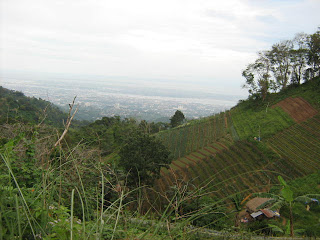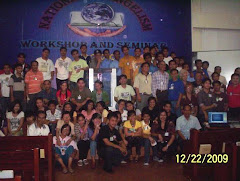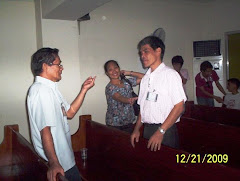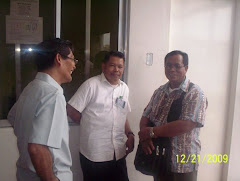 My heart bleeds in pity for the low state she is presently in–a woman sick of an ailment she thought incurable, without any money, without any friend, forsaken by kids, left to rot by relatives.
My heart bleeds in pity for the low state she is presently in–a woman sick of an ailment she thought incurable, without any money, without any friend, forsaken by kids, left to rot by relatives.She was special. She was special in more ways I could think of, and that was before. She was the first person who heard me preach in this part of nowhere, the first to ask me to share dinner with her and her family in the dilapidated shack she calls home, the first to invite neighbors to listen to me preach. I could relish with joy preaching to a big crowd who came because this woman took it upon herself to challenge their faith and tell them in her laywoman’s tongue the original Jesus she had heard me teach. Come and listen and be blessed, she would say.
She too was the first to accept the gospel invitation when it was extended. And as I lifted her up from the watery grave that was Talamban church baptistery, she exuded with much joy.
Her admirable virtue was her propensity to believe what I was preaching about the God of the impossibles: “Though your sins be as scarlet, God could make them white as snow; though they be red like crimson, they shall be as wool.” She would repeat this as she heard it from me. Of course, she like the rest of us has seen no snow, and neither does she have any idea how wool looks like, but she took all of it. She needed that message. When others doubted whether such non-Catholic theme makes sense in this community that was shackled by the influence of an adulterous priest, she negated that with all her might. She was not afraid of that priest, and neither should you! She could be the first woman heretic in this mountain heartland. She didn’t mind that.
That was eight years ago.
Her spiritual journey after her baptism was one of many rises and many falls. Many absences from worship. Much quarrel with husband. Her daughter complained of her being unmotherly. She, the mother, complained of her daughter’s being disrespectful. Daughter and mother would have a showdown in front of me during a session, their way of engaging my sympathetic ear for their cause. I did not know what to believe.
Now I know why. I was not able to convert any of her kids. Not even her daughter-in-law. She was too much for them, and she was not helping the cause of Jesus.
She definitely has changed. And she has changed a lot.
I pity her seeing now this state she is in. The other part of me however hates her distrusting disposition. Do I say distrust? While she claims she is still a believer, she displays hints that she no longer is.
I have been trying to explain matters to her, like I was explaining to her last week, matters of how God cares for His own, how God could move people and events to help His people. Be patient and wait. I am trying to find help for your illness. This is no age of miracles; these are times of God’s providence. Miracles come in an instant. Providence may take a long time.
She baffles me by asking why God can’t help her immediately? There is a reason, I’d say, and that is you. That is sin in our lives. I have asked her to be transformed firstly by renewing her disposition. Be a likeable one among these people whom you do not like. Be patient. Be Christ-like. Be hopeful. Be trusting.
You perhaps could sense as you read these lines that the preacher in me has been trying doubly hard to put some sense into the brains of a stubborn woman, and in my way of doing, I was cramming many things into her. These are the lessons she missed by not attending the classes. My desire is for her to regain the ground she has lost, ground she has been losing, ground she is about to lose. I keep harping on it by asking her to try more faith, more hope, more patience and endurance. I ask her to wait for God. The Lord in His own time will answer your prayers.
She argues with me. “No more,” she snaps back. I can’t believe that!
And when she utters something that I thought I would hear only from infidels, I in my frustrations have no options but to leave.
She is holding a bolo, a sharp machete that could cut me in pieces. But that definitely is for someone else–for the husband she says she has shared this miserable life of thirty-five years. She hates him so much.
Her husband? He keeps company with us at church. He now learns to pray and lead the prayer. “Are you going to kill the man who loves you, the man who has forgiven your acts of betrayal in the past?” That is frustration in me speaking to her, my voice perhaps louder than loud, and you could sense that. I better go!
This morning worship service goes on as usual–without her, of course.
After church I take the husband aside and warn him to be careful. He nods his head. He knows too well.
I still love this woman disciple who was the firstfruit of the Lord’s work in this place I call nowhere, in this mountain heartland. I could not bear not doing anything that could perhaps help her regain her first love. Not giving up? You bet I am not.
Today I have left some money with the church treasurer, with the instruction to help this woman–this disciple whom Jesus also loved like the rest of us.
Love has no dimension, as I would often tell them. Love is vaster than the vastest sea, deeper than the deepest depths. The whole of heavens cannot contain it. It is loving the unlovable and the unloved. It is loving in spite of, or despite of. That is the love of Jesus. We can only emulate a part of it, but not the whole of it.
If you by chance have that feeling that you have given all to help and that your generosity has been abused, that the disciple who once believed in you no longer believes in you, be of good cheer: You are not alone.
She is sick and suffering. But it is a sickness that is more than physical. And as I pass by her house on the way out of the village, I have been told that she is still holding that bolo and waiting for her husband to come home. She has threatened to hack him, and then she will commit a harakiri.
If this happens, then I could write FINIS to a chapter of my frustrations over a disciple who once was and now no more.
But deep in my heart I still long for this lady to come back. And I have asked the church to help me pray for her.





































